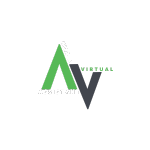Virtual assistants (VAs) have become essential for businesses looking to enhance productivity and reduce operational costs. But what makes a great virtual assistant? It’s a blend of critical skills, adaptability, and specialized expertise that allows VAs to meet diverse business needs effectively.
With over 50% of small businesses in the U.S. utilizing virtual assistants, and the global market projected to grow at a rate of 11.4% annually, the demand for skilled VAs is rising. In this article, we’ll explore 13 essential skills that define a top-tier virtual assistant, from communication and time management to niche specialization, providing insights into what sets the best apart from the rest.
13 Essential Skills of a Great Virtual Assistant
A great virtual assistant is more than just someone who completes tasks—they are an extension of your business, ensuring that operations run smoothly and efficiently. To truly excel in this role, a virtual assistant must possess a combination of soft and technical skills that enable them to adapt to the ever-changing demands of the business world. Below, we explore the 13 essential skills that every great VA should master.
1. Transparent Communication Skills
Clear and open communication is the cornerstone of any successful relationship between a VA and their client. This means being able to convey ideas, updates, and feedback effectively, ensuring that both parties are always on the same page and that expectations are managed properly.
2. Clarity in Writing and Speaking
Whether through detailed emails, reports, or verbal instructions, a great VA must be articulate and precise. Clarity in writing and speaking prevents misunderstandings and ensures that tasks are completed exactly as intended. This skill is crucial for maintaining professionalism and ensuring that all communications are understood.
3. Active Listening Skills
Active listening is crucial for truly understanding client needs, concerns, and expectations. A great VA pays close attention to details, asks clarifying questions when necessary, and responds thoughtfully. This ensures that nothing is overlooked and that the VA can anticipate and meet client needs effectively.
4. Technically Expert
A great VA must be technically proficient and comfortable with a range of digital tools and platforms. This includes everything from basic office software to more specialized tools that facilitate efficient workflow, helping them to deliver high-quality work consistently.
5. Familiarity with Common Tools and Software
From project management tools like Asana and Trello to communication platforms like Slack and Zoom, familiarity with essential software is a must for any VA. A great VA knows how to leverage these tools to optimize productivity, streamline processes, and enhance collaboration with their clients.
6. Time Management
Managing time effectively is critical for meeting deadlines and balancing multiple tasks. A great VA is adept at scheduling, prioritizing, and managing their workload to ensure that everything gets done on time without sacrificing quality. This skill is key to maintaining efficiency and reliability.
7. Scheduling and Calendar Management
Keeping track of appointments, deadlines, and meetings is a fundamental skill for any VA. Mastering calendar management helps in avoiding scheduling conflicts, ensuring that clients’ time is optimized, and that all important events and deadlines are met without any hiccups.
8. Problem-Solving Abilities
Challenges are inevitable in any business, but a great VA doesn’t just identify problems—they solve them. This requires creative thinking, resourcefulness, and the ability to come up with effective solutions quickly. A VA with strong problem-solving skills can keep operations running smoothly even when unexpected issues arise.
9. Creative Thinking in Unexpected Situations
Unexpected situations often arise, and a great VA must be able to think on their feet. Creative thinking allows them to navigate challenges, find innovative solutions, and maintain smooth operations without missing a beat. This adaptability is a key differentiator for top-performing VAs.
10. Communication to Meet Client Needs
A great VA doesn’t just communicate; they tailor their communication style to meet the specific needs and preferences of each client. This personalized approach helps in building strong, trust-based relationships and ensures that the VA can deliver exactly what the client is looking for. Especially when you are an Airbnb virtual assistant, you need to have superb guest communication skills.11. Handling Objections
Every VA will face objections or pushback at some point, whether from clients, customers, or other stakeholders. The ability to handle objections professionally and calmly is crucial for maintaining client relationships, ensuring tasks move forward, and demonstrating resilience in challenging situations.
12. Handling Multiple Tasks and Roles
A great VA is a multitasker, capable of juggling various responsibilities without compromising on quality or efficiency. This flexibility makes them invaluable to clients with diverse needs, allowing them to seamlessly transition between different tasks and roles as required.
13. Decision-Making Under Pressure
In fast-paced environments, decisions often need to be made quickly and with confidence. A great VA remains composed under pressure, evaluates the situation, and makes sound decisions that benefit their client’s business. This ability to think critically and act decisively is essential for success in the VA role.
Specialization and Niche Expertise for a Great VA
One of the key factors that can elevate a virtual assistant from good to great is specialization. By focusing on a specific industry or niche, a VA can develop deep expertise, making them more valuable to clients within that field. Specialization allows a VA to offer tailored services, anticipate industry-specific needs, and provide insights that a generalist might not possess.
For instance, a VA specializing in legal assistance can help with document preparation, case management, and client scheduling, all while navigating the complexities of legal jargon and confidentiality. Similarly, a VA focusing on the medical field can manage patient communications, appointment scheduling, and medical transcription with a deep understanding of healthcare regulations and practices.
Specialization also offers the benefit of standing out in a crowded market. Clients are more likely to hire a VA who understands their specific industry needs, whether it’s managing Airbnb properties, assisting with real estate transactions, or providing support to a busy legal practice. This niche expertise not only increases the VA’s marketability but also allows them to command higher rates due to their specialized knowledge.
Popular Industries for Virtual Assistants:
- Real Estate
- Healthcare (Medical VA)
- Legal Services
- Hospitality (Airbnb management)
- E-commerce (For example ebay virtual assistant, shopify va etc)
- Digital Marketing
- Financial Services
- IT and Technology
- Creative Services (Design, Writing, Content Creation)
- Coaching and Consulting
Specializing in any of these industries can greatly enhance a VA’s ability to provide exceptional value to their clients, leading to long-term partnerships and a successful career.
Conclusion
From transparent communication and time management to problem-solving and niche expertise, these essential skills enable a VA to provide exceptional support that drives business success. Specializing in a particular industry further enhances a VA’s ability to deliver tailored, high-quality services that set them apart in a competitive market. Whether you’re looking to hire a virtual assistant or become one, mastering these skills and understanding the importance of niche expertise is crucial. By doing so, you can build strong, lasting relationships with clients, ensure operational efficiency, and achieve outstanding results in any business environment.

